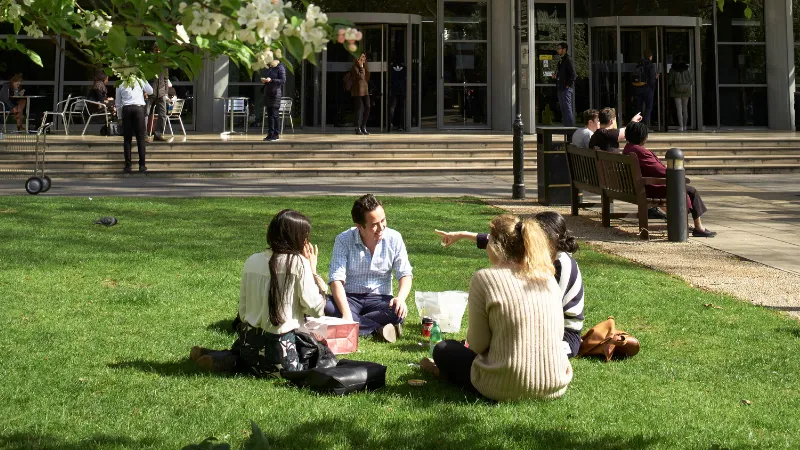
Managing anxious feelings
Understand anxious feelings, the thoughts associated with them, and what...
Counselling offers a safe, confidential and supportive space, to help you explore your problems, share and gain insight into your feelings, thoughts and behaviour.
The Counselling and Mental Health Support Service offers free and confidential in-person and online support for students at King’s.
Counselling offers a safe and supportive space to help you explore your problems, share and gain insight into your feelings, thoughts and behaviour. This is a free and confidential service. The counsellor is there to help you identify and understand more clearly what may be impacting on your daily life.
A counsellor can help you to gain a different perspective on yourself and/or your problems and aid you in making choices and changes that feel right for you.
Our counselling service offers cognitive behavioural (CBT) and integrative or psychodynamic group and individual therapy, depending on what best suits your needs.
When you register with the Counselling & Mental Health Support service at King’s, whenever possible, as well as your presenting issues we will consider preferences such as gender, sexuality, language and race when allocating you to one of the team. Our triage team will review your referral and schedule an appointment with the service best suited to help you address your priorities. You may be offered an appointment with a Counsellor or a Wellbeing Advisor based on your needs.
We hope you agree that we all have the right to be treated with both dignity and respect. The Counselling & Mental Health Support Service does not accept abusive, racist, derogatory, threatening, inappropriate behaviour or language.
Registering with the Counselling & Mental Health Support Service gives steps for registration, eligibility, how appointments works, and other details you need to know ahead for registering for our service. Please make sure to read the late arrival and cancellation information on this page.
After you have read the above instructions, please follow this link to register:

Understand anxious feelings, the thoughts associated with them, and what...

Understand patterns of worrying, rumination, and insomnia which can...

Understand procrastination better and find out how to challenge unhelpful...

Understand low mood and learn more about how you can challenge unhelpful...
• Feeling preoccupied with thoughts about food and eating? • Worrying a lot about your body shape and weight? • Feeling like your relationship with food is having a negative impact on your life? Check the links below for support.
Eating disorder support links

Check the links below for guidance on accessing health and mental health support.
Health Advice for Mandarin Speaking StudentsHAMSS links
King's Talk Club is a safe, non-judgemental space for male students to talk about any issues they're facing hosted by two of King's Counsellors, Ade Adetula and Tom Findlay. When: First and third Tuesdays after every month, from 18 November Where: KCLSU Activity Room A, Bush House South East, Time: 13.00 - 14.00

Free and confidential 24/7 digital mental health support.

Free, safe and anonymous mental health and wellbeing support.

Wellbeing tips and support for students from Kooth and Qwell.